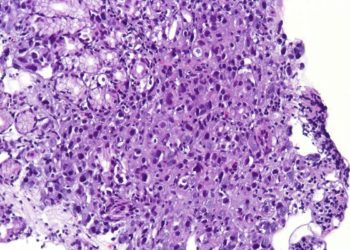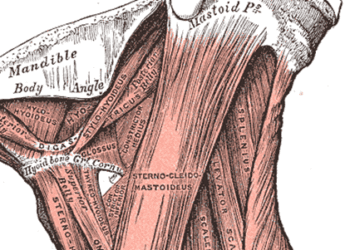Pelvic organ prolapse surgery has increasing complications long-term
Image: PD
1. The abdominal sacrocolpopexy procedure has been shown to be a promising treatment for pelvic organ prolapse but has increasing complications in the long term.
2. The addition of an anti-incontinence urethropexy procedure to the sacrocolpopexy procedure decreases rates of post-operative stress urinary incontinence.
Evidence Rating Level: 1 (Excellent)
Study Rundown: The standard surgery conducted for pelvic organ prolapse (POP) is the abdominal sacrocolpopexy which makes use of a synthetic mesh graft. The Colpopexy and Urinary Reduction Efforts (CARE) trial, conducted between 2002-2005 showed that the addition of an urethropexy procedure to a sacrocolpopexy procedure reduces postoperative incontinence at 3 months and 2 years. The current study attempted to look at long-term outcomes in this trial population.
The authors demonstrated that the abdominal sacrocolpopexy procedure may be less effective in the long term than previously hoped. There was a relatively high failure rate at 7 years, and mesh erosion occurs quite frequently, occurring at a nearly 10% rate. The study also shows that an anti-incontinence urethropexy decreases the rate of post-operative stress urinary incontinence at 7 years. One major limitation to this study is poor retention rates for long-term follow-up as only 90 of the original 322 participants were available for physical and quality-of-life interviews at 7 years. Hence the study’s power was limited in detecting statistically significant difference. Future research should focus on providing long-term follow up trials with a larger population as well as working to improve the durability of the mesh material to decrease rates of erosion.
Click to read the study, published today, in JAMA
Click to read the accompanying editorial in JAMA
In-Depth [randomized, masked trial]: This randomized study evaluated 215 of the 322 original patients enrolled in the Colpopexy and Urinary Reduction Efforts (CARE) trial. Of original 322 patients, only 90 were available for physical and quality of life interviews at 7 years. Composite probability of pelvic organ prolapsed (POP) treatment failure with urethropexy was 0.48 and 0.34 for no urethropexy (treatment difference of 0.134; 95% CI, -0.096 to 0.322). Probability of stress urinary incontinence was 0.62 for urethropexy and 0.77 for no urethropexy groups (treatment difference of -0.153; 95% CI, -0.268 to -0.030). Probability of mesh erosion in the CARE and this extended CARE trial was 9.9% (95%CI, 6.5%-15.0%).
By John Prendergass and Rif Rahman
More from this author: Protected sleep periods improve intern alertness and sleep duration, ADHD medication decreases rates of criminality in ADHD patients, Low dose aspirin shows net clinical benefit in patients with first unprovoked venous thromboembolism.
© 2013 2minutemedicine.com. All rights reserved. No works may be reproduced without written consent from 2minutemedicine.com. Disclaimer: We present factual information directly from peer reviewed medical journals. No post should be construed as medical advice and is not intended as such by the authors or by 2minutemedicine.com. PLEASE SEE A HEALTHCARE PROVIDER IN YOUR AREA IF YOU SEEK MEDICAL ADVICE OF ANY SORT. Content is produced in accordance with fair use copyrights solely and strictly for the purpose of teaching, news and criticism. No benefit, monetary or otherwise, is realized by any participants or the owner of this domain.









